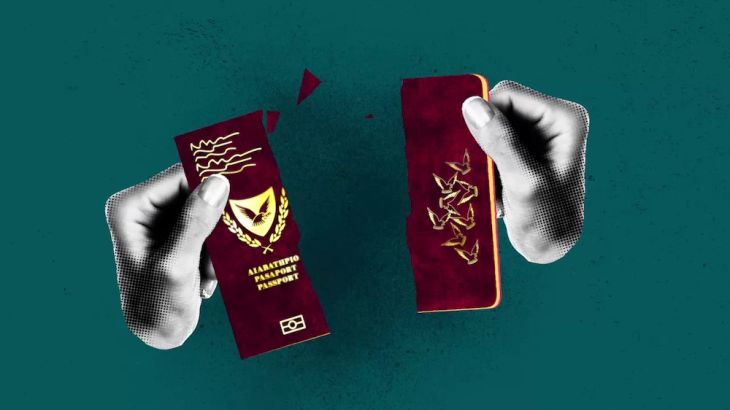
Exclusive: EU eyes legal action over Cyprus’s ‘golden passport’
EU commissioner for justice calls for changes to citizenship-through-investment scheme after Al Jazeera investigation.
European Commissioner for Justice Didier Reynders has told Al Jazeera he is looking into the possibility of legal action against Cyprus over the country’s citizenship-through-investment scheme.
Reynders also called for changes throughout Europe to citizenship-through-investment schemes and said he preferred to completely phase them out.
Keep reading
list of 4 itemsThe Kung Fu Nuns of Kathmandu
Myanmar Army on the Ropes
Slapped: Speaking Up In Thailand
His comments come after Al Jazeera’s Investigative Unit published The Cyprus Papers, a collection of leaked documents that showed Cyprus sold passports to criminals, fugitives and people considered to be at high risk of corruption.
Those documents, consisting of almost 1,500 passport applications containing more than 2,400 names, showed Cyprus failed to conduct due diligence on dozens of cases, allowing criminals and people under international sanctions to buy citizenship for the EU-member state.
Reynders told Al Jazeera he asked the legal department of the European Justice Commission “to analyse if it is possible in the legal framework that we have now to start an infringement proceeding or to come with a legislative proposal”.
Reynders added he would like to see some action from the European Union on new legislation, but the bulk of the responsibility falls on the shoulders of Cyprus.
“After the report that you have published and some others in the past, the first element is to be sure that there are some investigations at the national level from the justice system,” Reynders said.
“It is the task of the justice system in Cyprus to analyse the situation, and if it is possible for the Cypriot authorities to revoke the nationality.”
Reynders also focused on the importance of collaboration between EU member states, calling for more information-sharing between supranational authorities.
“We want to have clear information about the different people asking for nationality with a clear exchange of information with Europol and other kinds of institutions at the European level.”
Cypriot response
On Wednesday, the Cypriot government also responded to Al Jazeera’s revelations, calling the reporting “propaganda, not journalism”.
“All of the persons in question, for whom we will avoid naming for obvious reasons, at the time of submission of their applications, met the criteria and were holders of clean criminal records in their countries of origin and countries of residence,” Cypriot Minister of Interior Nicos Nouris said during a news conference, according to local media.
“What is being found is a deliberate attempt by Al Jazeera to falsify data and information,” Nouris added, without providing proof of his claims.
Nouris said an investigation was continuing into the source of the leaked documents Al Jazeera obtained.
‘Time is of the essence’
In a response to Reynders’ comments, global anti-corruption NGO Transparency International welcomed his suggestions but implored the EU to make haste with its response.
“The Cyprus Papers show that it’s not just about a few bad apples and the occasional lapses of judgement. This is a systemic problem. The only way forward is for Cyprus to suspend the scheme, revoke the passports in question, and open investigations to establish accountabilities for the apparent abuse,” Laure Brillaud, Transparency’s senior policy officer, told Al Jazeera.
However, Brillaud also said it was not the first time the EU proposed changes to the programmes.
“Now it is important the commission follows through on its promise. We have previously heard the commission say they will not tolerate abuse through these schemes but not take decisive action,” she said.
“The EU must waste no more time, initiate infringement proceedings against Cyprus, and potentially other countries that sell EU citizenship, for violating the principle of sincere cooperation between the member states.
“What we need to see from the EU is legislative proposals to fundamentally reform these schemes or a road map for ending risky golden visa programmes.”